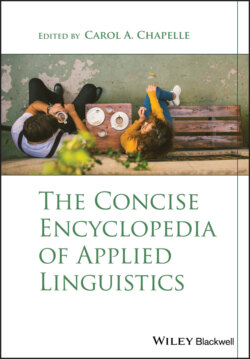Читать книгу The Concise Encyclopedia of Applied Linguistics - Carol A. Chapelle - Страница 89
Cultural Intelligence Scale (CQS)
ОглавлениеConceptual foundation. Cultural intelligence is a multidimensional concept researched and developed by Earley and Ang (2003) and refined by Van Dyne et al. (2012). Its roots are in intelligence theory as posited by Sternberg and Detterman (1986). It is a culture‐general construct.
Cultural dimension(s) being measured: culture learning. The CQS measures culture in four aspects: (a) metacognitive, or strategy/assessing and analyzing intercultural experiences; (b) cognitive, or knowledge/understanding of culture as a concept that transcends specific national or ethnic traits; (c) motivation, or desire to interact with people of other cultures; and (d) behavior, or a person's ability to respond appropriately in different cultural contexts.
Reliability and validity. Confirmatory factor analysis results show goodness of fit for the authors' theoretically based, 20‐item, four‐factor model (chi‐square = 381.28 [164 df]) and reliability tests for each factor were at least 0.77. Ang et al. (2007), Van Dyne, Ang, and Koh (2009), and Van Dyne et al. (2012) found that the instrument predicts a range of indicators in culture learning contexts.
Generalizability. As a culture‐general instrument, the CQS is designed to be used by people of different cultures. It has also been tested with participants from at least 12 countries. In 2012 researchers developed an Expanded Cultural Intelligence Scale (E‐CQS; Van Dyne et al., 2012) to introduce 11 sub‐dimensions of these four factors. Initial analyses are promising but further psychometric testing remains to be done.
